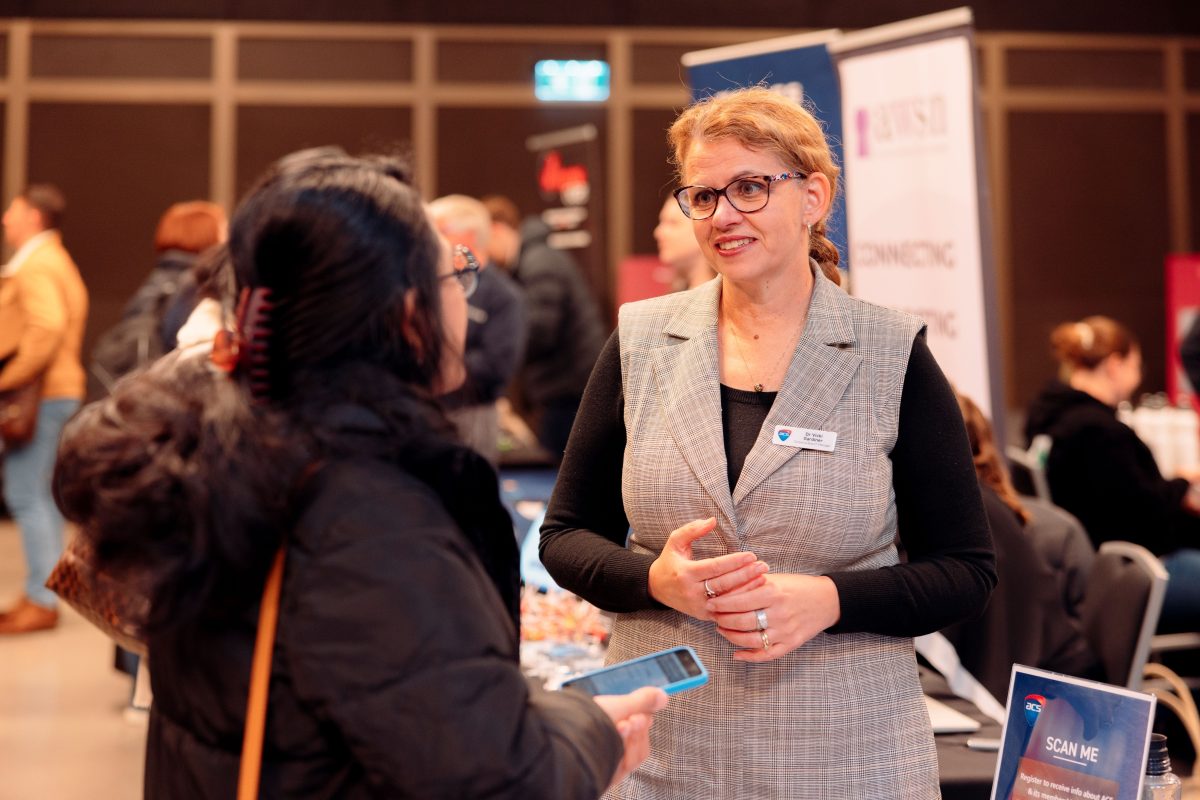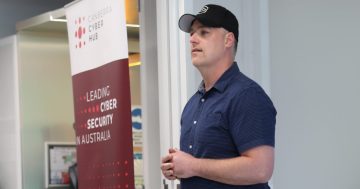
A Canberra Cyber Hub survey revealed a remarkable willingness among respondents to upskill for a career in cyber security, with a whopping 90% expressing their readiness. Photo: Canberra Cyber Hub.
In the ever-evolving landscape of Australia’s job market, one sector is experiencing a boom like never before – cyber security.
According to 2022 statistics by CyberCX, the country is facing a projected shortage of 30,000 cyber security experts by 2026.
As industries grapple with a shortage of skilled professionals, the spotlight is on individuals to shape their career paths in this high-demand field.
The cyber threat landscape is expanding, and so is the demand for skilled cyber security professionals. However, the challenge extends beyond technical expertise. It’s about finding individuals with the right soft skills and a willingness to undergo the necessary training for a successful career in cyber security.
So, where do organisations find these capable professionals, and what motivates individuals to transition into the world of cyber security?
Enter the ‘Double A’ – a term coined by employers seeking professionals with the right attitude and aptitude. In the quest to understand what drives career transitions to cyber security, the Canberra Cyber Hub distributed a survey within the Canberra community over 11 months, reaching more than 1000 respondents.
The survey revealed a remarkable willingness among respondents to upskill for a career in cyber security, with a whopping 90 per cent expressing their readiness. More than half preferred courses that could be completed in less than 12 months, emphasising the strategic approach to efficiently transitioning to a new career in an industry marked by rapid changes.
Looking deeper into motivations, learning and development opportunities emerged as the top driver, overshadowing financial incentives, which surprisingly landed in fourth place. This underscores the importance of employers offering robust training programs, mentorship initiatives and avenues for professional growth to attract individuals looking to make their mark in the cyber security domain.
As the survey unveiled the potential cyber security workforce, professionals from various sectors are contemplating the shift.

Making the shift to cyber is not just about plugging the skills gap, it’s about shaping a dynamic future in cyber defence. Photo: Canberra Cyber Hub.
Those currently working in innovation, IT and tech sectors are leading the charge, closely followed by public servants and individuals within the education sector.
Professionals from these sectors bring a foundation of technical expertise and problem-solving capabilities that align seamlessly with the demands of cyber security. This trend highlights the value of transferable skills.
When considering a career in cyber security, think of the ‘Double A’ as the secret sauce.
The amalgamation of aptitude and attitude proves indispensable, and the industry’s openness to professionals from diverse sectors ensures a blend of innovative thinking and problem-solving capabilities.
From executive assistants transitioning to cyber analysts to security guards becoming cyber access and identity management (IDAM) professionals, there are many success stories.
Take Mai Ann Sanchez from Castlepoint Systems and how she swapped the front desk for the cyber frontier.
“Cyberattacks are on the rise, and it’s not just an Australian problem, it’s global. I want to protect people, businesses, and organisations from these digital threats,” Mai Ann said.
“Soft skills are key – you’re communicating with people all the time. Having a curious mind and the motivation to learn is vital.”
Mai Ann was drawn to the constant challenges and learning opportunities in cyber security, making it an obvious career shift.
If you have the willingness to learn and develop for a career in cyber security and position yourself as a proactive candidate ready to meet the industry’s evolving demands, then a career in cyber is for you.
It’s not just about plugging the skills gap, it’s about shaping a dynamic future in cyber defence.
So, are you ready to embrace the ‘Double A’ advantage and get on board a cyber security journey?
Take your first step to a career in cyber by completing the Canberra Cyber Hub quiz to receive your cyber career starter pack.
Region Media Partner Supplied Content










